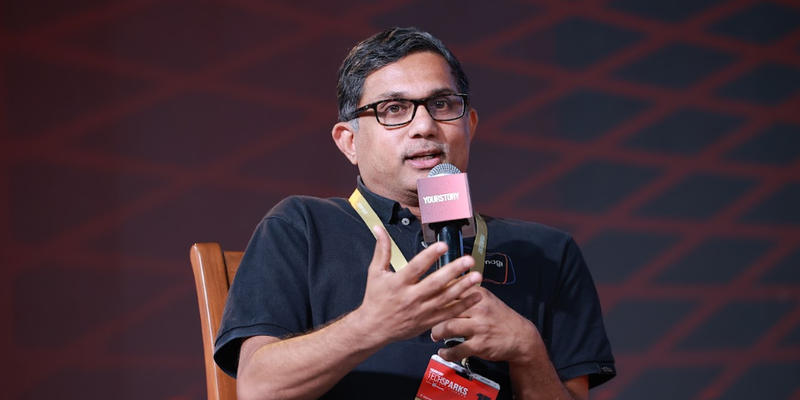How ZOFF is modernising Indian spice industry through innovation and automation
Raipur-based ZOFF is shaking up India’s legacy spice market with smart automation, quality spices, and a consumer-centric approach. The bootstrapped startup has over 75 products and 150 SKUs, and has catered to about two million customers so far


India is the world’s largest spice producer and exporter, and accounts for 40% of global production, according to Indusfood. The country cultivates about 75 of the 109 spice varieties recognised by the International Organisation for Standardisation (ISO).
Despite the dominance, the industry has remained fragmented and under-modernised. Dominated by legacy players and unbranded products, the market has long struggled with fragmented supply chains, inconsistent quality, unbranded players, and rampant adulteration.
With rising health consciousness, increasing urbanisation, and growing digital access, Indian households are now demanding clean-label and standardised spice products.
At the forefront of this transition is ZOFF Foods, a Raipur-based startup that is redefining how Indian spices are packaged and consumed.
Founded in 2015 by Akash Agrawalla and his brother Ashish Agrawalla, ZOFF started with a limited range of blended spices, and has since expanded to over 75 products and 150 SKUs across pure, blended, whole spices, and seasoning mixes. The lineup now includes plain and flavoured dry fruits, regional combo spice kits, and 5-minute gravy and marinade mixes.
“We realised that Indian consumers are increasingly looking for both authenticity and convenience. Modern Indian kitchens are changing. People want to eat well without spending hours prepping. That’s the gap we are trying to bridge,” Akash Agrawalla, Co-Founder, ZOFF Foods, tells YourStory.
From steel to spices
During his MBA in Marketing in Australia, Akash was exposed to global trends in consumer behaviour and brand building. After returning to India, he set out to identify sectors that were both culturally significant and ready for transformation.
“Spices are the soul of Indian cuisine. Yet the industry hadn’t evolved in decades. I saw an opportunity to apply modern thinking to a deeply traditional category,” he recalls.
Akash’s vision found resonance with his brother, Ashish Agrawalla, who has over a decade of experience in business, specialising in setting up and scaling manufacturing operations and ensuring standards of quality and efficiency in production. Together, they incorporated ZOFF (Zone of Fresh Foods) in 2015 to modernise the Indian spice industry without compromising on authenticity.
Engineering trust through quality control
By 2018, the company launched commercial operations with a manufacturing unit in Raipur.
“Spices are one of the most adulterated food items in India. If we were serious about building a brand rooted in trust, we had to control every step. Quality couldn’t be an afterthought, it had to be engineered,” says Akash.
To achieve this, ZOFF invested in advanced infrastructure, including Air Classifying Mills (ACM) for cool grinding. Unlike conventional grinding methods that can raise temperatures above 100°C, which degrade the natural oils in spices, ACM maintains a cooler temperature range of 30–40°C.
“This preserves the essential oils, aroma, and medicinal properties of the spices. We're not just selling ingredients; we’re safeguarding a part of our culture,” says Akash.
ZOFF also addressed another major gap in the spice market—packaging, as traditional packaging often led to early spoilage.
The company introduced resealable, zip-lock pouches that are tamper-proof and extend shelf life while retaining freshness.
ZOFF's products are FSSAI certified, backed by third-party purity certifications, and undergo rigorous in-house quality checks to ensure food safety and product integrity.
A digital-first brand with phygital ambitions
ZOFF has partnered with online platforms like Amazon Fresh, Zepto, Swiggy Instamart, Blinkit, Flipkart Minutes, and Flipkart Grocery. In addition to its strong online presence, the products are available in over 10,000 retail outlets across the country. The brand has served over two million customers and is projected to deliver to over five million customers in the next 18 months.
“Online gave us the speed and scale to reach modern consumers who were looking for better alternatives,” Akash explains.
Today, 80% of the brand’s sales come from online platforms. However, ZOFF is now focused on strengthening its offline footprint and is available in over 20,000 retail outlets, including D-Mart and Reliance Smart Bazaar.
“Offline is critical for long-term brand building and reaching Bharat. We aim to shift to a 60:40 mix between offline and online channels over the next year,” he adds.
Challenges and navigating the market
Breaking into the spice market, where consumers are fiercely loyal to legacy brands such as Catch, MDH, and Everest, was no small feat.
“Changing someone’s cooking habits is not easy. We focused on transparency, product quality, and educating consumers. Over time, they could taste the difference,” Akash explains.
“We’re not here to win a price war. Our belief is simple: solve real consumer problems, deliver value, and growth will follow,” he adds.
The brand also faced challenges around adulteration, scaling supply chains, and breaking conventions. “At every step, we were breaking norms, be it technology, packaging, or how we communicated. Educating consumers was key,” notes Akash.
Market and business
According to Research and Markets, India’s Spice market is projected to reach $17.04 billion by 2033, growing at a compound annual growth rate (CAGR) of 8.16% from 2025 to 2033.
ZOFF currently faces competition in online and quick commerce channels from regional and niche brands like Goldiee Group, Sakthi Masala, Rajesh Masala, Ramdev Masala, and Ashok Masale.
“Our USP lies in being India’s first brand to introduce spices processed with cool grinding technology in a fully automated, touchless plant, preserving essential oils, aroma, and natural color. Unlike traditional grinding, our process ensures purity, consistency, and zero human contamination, setting a new benchmark for quality in the spice industry,” he says.
ZOFF’s spice products are priced in the range of Rs 15 to Rs 105, with combo packs ranging from Rs 122 to Rs 652. Premium dry fruit combo packs are also available, with prices going up to Rs 2,395.
The company, which claims to be profitable, recorded a revenue of Rs 92.60 crore in 2023. Looking ahead, Zoff is aiming to achieve a revenue of Rs 200 crore for FY 2025–26.
The brothers invested about Rs 60 crore from their personal savings to bootstrap the startup. In February 2023, ZOFF secured Rs 1 crore in seed funding from boAt co-founder Aman Gupta during Shark Tank India. In August 2024, it raised Rs 40 crore in a Series A round led by Private Equity through the JM Financial India Growth Fund III.
“We didn’t raise capital to burn cash. Every rupee was invested in infrastructure, automation, and systems, things that build a sustainable business,” Akash explains.
Darius Pandole, Managing Director and CEO of Private Equity and Equity AIFs at JM Financial, highlighted branded spices as one of the most promising segments in the food industry. “Zoff has secured a favourable presence across all major online platforms in India, positioning itself as a brand of premier choice in the spices segment. We strongly believe that Zoff can emerge as one of the leading spices brands in the future,” he says.
The brand has a core team of about 80 people, with over 80% of its supply chain workforce being women. “We believe empowerment starts at the workplace. Women bring discipline, consistency, and community values, traits that naturally reflect in the quality of our products,” Akash says.
Future plans
ZOFF is now preparing to take Indian spices global, with the United States as its first international market. The brand is hiring leaders with international experience to navigate compliance, consumer preferences, and storytelling for global audiences.
“Indian spices are world-class. But they need to be presented with the quality, safety, and brand credibility that global consumers expect,” Akash says.
Back home, ZOFF plans to enter new product categories such as immunity-boosting spice blends and healthy snacking options, evolving with the lifestyle of health-conscious Indian consumers.
“We’ll stay rooted in our core while expanding into adjacent spaces. The goal is to be in every modern Indian kitchen, whether in Raipur or San Francisco,” Akash concludes.
Edited by Megha Reddy




























































































































































































